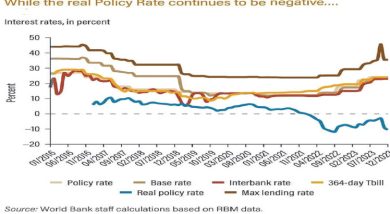Firm cautions on tax measures
Audit firm EY says there is need for Treasury to engage oil manufactures on the newly introduced 16.5 percent value added tax (VAT) on cooking oil and consider making the price of cooking oil VAT inclusive to reflect the intention of the government.
In its tax update on the 2020/21 National Budget proposed tax measures, the firm said following the introduction of the tax measure, which comes into effect on October 1 2020, the final price to the consumer will be increased.

“The manufacturers continue to benefit importation of raw materials duty free through the Industrial Rebate Scheme. There will, therefore, be no expectation of increased oil prices since the oil industry is protected from adverse competition under the Surcharge Tariff regime. However, VAT is a consumption tax, and the final consumer bears the final burden,” reads the EY update.
In the 2020/21 National Budget Statement under the theme ‘Living the Promise,’ Finance Minister Felix Mlusu also announced that the tax free bracket will be increased (subject to enactment of the Taxation (Amendment) Bill (2020) from K45 000 per month (K540 000 per annum) to K100 000 per month (K1.2 million per annum).
The 15 percent middle tax bracket has been proposed in the Bill to be removed.
However, EY observed that the Eleventh Schedule to the Taxation Act was amended in 2019 and it applies not only to pay-as-you-earn individuals, but to “individuals” business income as well.
“It is hoped that the proposed amendment will clarify on the scope of the intended amendment, otherwise it might cause an intended disparity on allowable deductions between the corporate entities and individual business income,” said the firm.
The audit firm also cautioned Treasury to elaborate further on the definition of “amount realised” under Section 2 of the Taxation Act for the purposes of Capital Gains Tax which will be amended by widening the scope of the definition to include ‘’any contingent amount realised at the time of disposal,” saying the proposed amendment does not align well with Section 11 of the Taxation Act which provides for the definition of assessable income.
Income that accrues to a taxpayer under Section 11 of the Taxation Act, is income to which the taxpayer has a vested rather than a contingent right, in the sense that a vested right is a right of ownership, including the right of enjoyment, which may, however, be postponed, and that a contingent “right” is a “chance or a possibility of a right.
“The proposed amendment on Capital Gains Tax if not carefully analysed and pragmatically drafted, may cause confusion to the taxpayers.”
The proposed tax changes which will become effective on 1 October 2020 upon passing of the amendment bills in Parliament.





